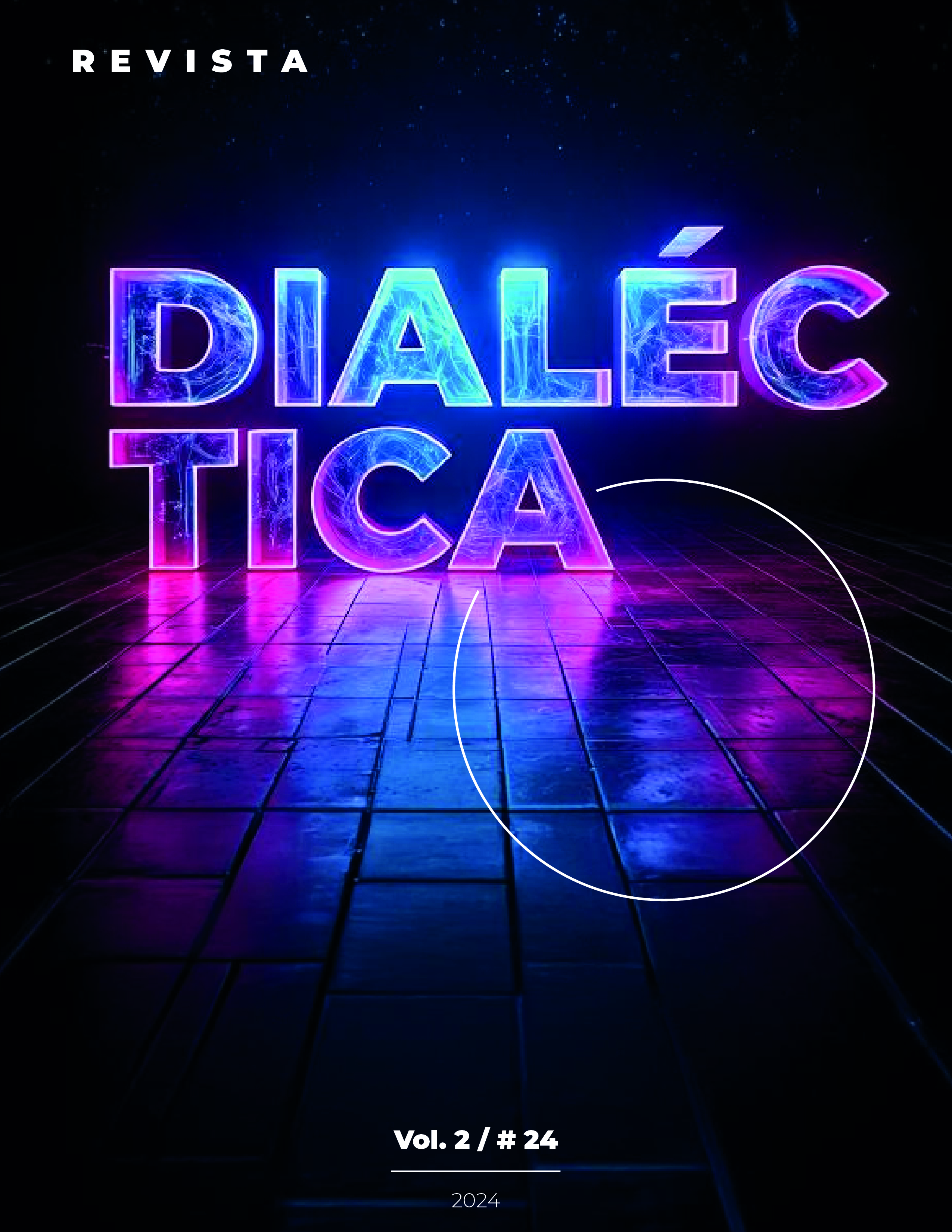EDUCATION FROM THE USE OF VALUES FOR HUMANIST DEVELOPMENT IN ACADEMIC TRAINING
DOI:
https://doi.org/10.56219/dialctica.v2i24.3451Keywords:
Education, values, humanism, academic trainingAbstract
Training in education in values, throughout school history, has given rise to a wide range of approaches, ranging from broad axiological perspectives that are significant in forming the societies of the moment. Given this, the attitude of educators towards humanistic training from the perspective of value must be highlighted, which constitutes a key element that can have a significant impact on the way in which academic training is developed in Colombia. This implies that education must adopt a comprehensive perspective to understand and promote a complete vision of the axiological formation of students. In this sense, an essay-type article has been prepared with the purpose of analyzing the theoretical foundations of education from the use of values for the humanistic development of students. From this review, the reflection has been reached that evaluation in this field must transcend the traditional approach and accommodate a variety of approaches and broad references. This way, educators will get a job in future generations. As a result, it was possible to specify the need to assume axiological and humanistic education with the required importance to approach broader references in the integral formation of the human being, not only in the early years, but also in the stage of youth.
Downloads
References
Abdala, C. (2007). Currículo y enseñanza. Editorial Brujas.
Bernal, J. T. (2019). Propuesta de juegos educativos en el desarrollo habilidades sociales en niños y niñas de cuatro años de la Cuna jardín “José Antonio Encinas” Tumbes 2016.
Chacón, N. (2000). Humanismo y valores en la formación del profesional de la educación. El componente humanista y la formación de maestros cubanos Ciencia y Sociedad, vol. XXV, núm. 4, octubre-diciembre, pp. 490-533 Instituto Tecnológico de Santo Domingo DOI: https://doi.org/10.22206/cys.2000.v25i4.pp490-533
Delors, J. (1998): “Los cuatro pilares de la educación” en La educación encierra un tesoro. Informe a la UNESCO.
Diaz, I. (2013). La Práctica Docente una Experiencia de Transformación Humanista. [Tesis doctoral, Universidad Santo Tomás]. Obtenido de https://repository.usta.edu.co/bitstream/handle/11634/12046/dueñasiliana2018.pdf?sequence=1
García, M. (2020). Propuesta de programa de estrategias metodológicas “Desarrollando Habilidades sociales para mejorar los aprendizajes” en alumnos del I y II ciclo de la Carrera Profesional de Educación Primaria de la Universidad Privada Cesar Vallejo de Chiclayo 2017.
Juárez, J. F. (2014). Educar es la respuesta ¿Qué es, para qué y cómo educar en valores ciudadanos? Universidad Católica Andrés Bello. Revista Educab, (4), 141–146. Caracas. [Documento en línea]. Disponible en: https://revistasenlinea.saber.ucab.edu.ve/index.php/educab/article/view/1591
Juárez, J. (2015). La educación y el cultivo de los valores en la sociedad. En Actualizada de los valores en Venezuela. (pp. 119-143). Caracas, Venezuela: Cuadernos Funtrapet.
Lickona, T. (1991). Educating for character: How our schools can teach respect and responsibility. Bantam Books.
Palacios, Preckler, Petersen, Cernuzzi y Elías (2021). Estructura de formación humanista. Espacio de desarrollo educativo.
Paulo, Soledad, Vuyk, Galeano y Vázquez (2021). Participación comunitaria en la construcción del plan de retorno seguro a las escuelas: Experiencia del plan piloto 2020-2021. Fundación Alda. Asunción de Paraguay.
Pereira, F. y Misle O. (2009). Violencia en los pupitres. ¿Qué es? ¿Cómo nos afecta? ¿Qué hacer? Caracas, Venezuela: Los Nardos Editores C.A.
Seibold, J. R. (2000). La calidad integral en educación: Reflexiones sobre un nuevo concepto de calidad educativa que integre valores y equidad educativa. Revista Iberoamericana de educación.
Downloads
Published
How to Cite
Issue
Section
License
Copyright (c) 2025 DIALÉCTICA

This work is licensed under a Creative Commons Attribution-NonCommercial-ShareAlike 4.0 International License.
La revista Dialéctica conserva los derechos patrimoniales (copyright) de las obras publicadas, que favorece y permite la reutilización de los mismos bajo la licencia Creative Commons Atribución-NoComercial-CompartirIgual 4.0 , por lo cual se pueden copiar, usar, difundir, transmitir y exponer públicamente, siempre que se cite la autoría y fuente original de su publicación (revista, editorial, URL y DOI de la obra), no se usen para fines comerciales u onerosos y se mencione la existencia y especificaciones de esta licencia de uso. Si remezcla, transforma o crea a partir del material, debe distribuir su contribución bajo la misma licencia del original.












